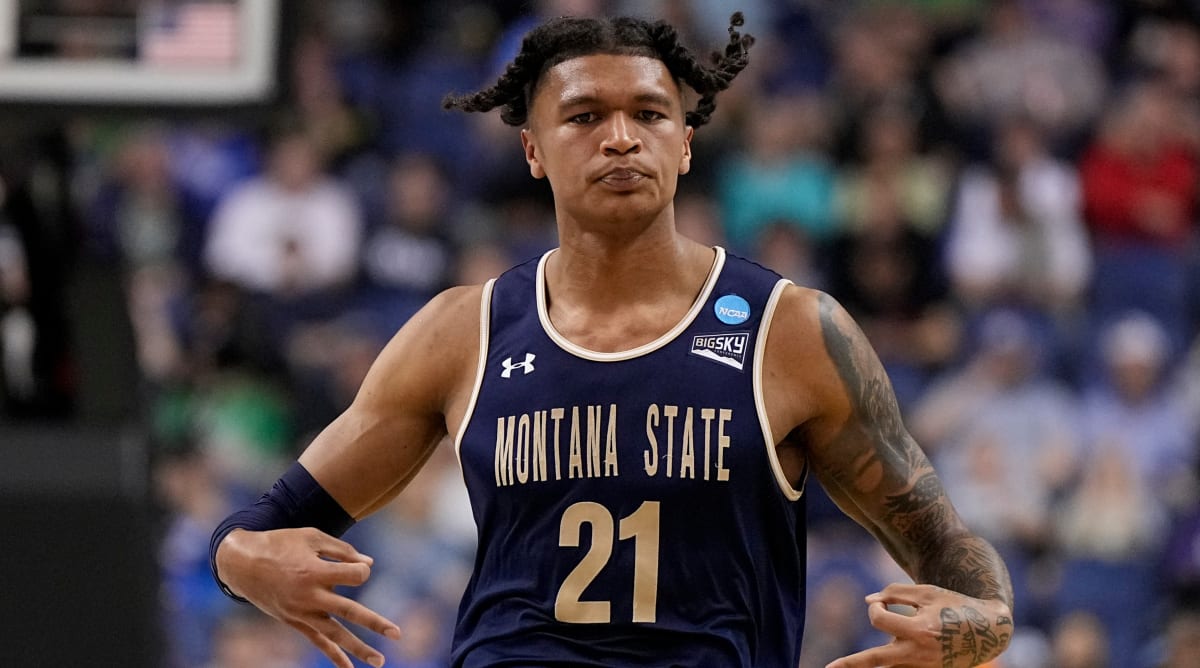The already-chaotic world of transfer waiver decisions got yet another wrench thrown into it by a West Virginia judge in federal court.
In a hearing Wednesday, Judge John P. Bailey issued a 14-day temporary restraining order preventing the NCAA from enforcing its transfer rules, paving the way for a host of second-time transfers that had been originally forced to sit out a season to be eligible, at least in the interim.
The case, brought forward by seven state attorneys general, centered around the NCAA’s policy that gave transfers a one-time exception to sitting out but forced other athletes, like West Virginia men’s basketball player RaeQuan Battle, to spend a year in residence before competing. It came as something of a culmination of months of uncertainty surrounding the waiver process for those athletes, which produced several high-profile fights and forced several notable players in multiple sports to miss part or all of their seasons.

Chris Carlson/AP
Now, those players face a new type of limbo: A two-week period in which they’re cleared to play (and schools in the clear from potential NCAA retribution, based on the same order), but nothing permanent. While the NCAA did confirm to reporters in a statement Wednesday afternoon that it would follow the court’s ruling, saying it “would not enforce the year in residence requirement”, questions remain after the decision. College basketball coaches in particular are scrambling, with teams set to play games as early as Wednesday night and still trying to better understand the ramifications of the ruling for players that had been sitting out. One critical clarification, courtesy of a statement from the NCAA to Front Office Sports, is that transfers who play during the period will not lose a year of eligibility should the injunction not be extended beyond the two-week period.
Battle, who averaged better than 17 points per game at Montana State and was considered one of the crown jewels of a loaded West Virginia transfer recruiting class this summer, is among the most prominent players this ruling impacts. Battle, along with Cincinnati big man Jamille Reynolds and Miami (Ohio) quarterback Maddox Kopp, testified in the hearing. His return to action is a welcome sight for a Mountaineers team off to a bumpy start, and could even be a boon for interim WVU coach Josh Eilert’s hopes of earning the full-time job.
Other high-profile men’s players impacted include wing Brandon Murray at Ole Miss, point guard Primo Spears at Florida State, point guard Jalen Cook at LSU and wing Adam Miller at Arizona State. In all, the ruling produces an unprecedented midseason flood of uncertainty into rosters across the country. If this ruling is more than a two-week mirage, it could shake up conference races across the men’s college game, not to mention its impact on other winter sports or on football players’ decisions to enter the portal as second-time transfers this winter.
In the long term, the implications of courts preventing the NCAA from enforcing transfer rules would drive even more action in the portal. The tighter rules for second-time transfers were put into effect this year at the request of the schools, which were frustrated by the near-constant roster movement that had taken over college sports in recent years. The hope among many in the industry was that tighter rules, combined with the bonus year of eligibility tied to the COVID-19 pandemic phasing out, would slow down player movement to more manageable rates and provide some stability. A loss in this case would hinder the association’s ability to prevent what it called a “system of perpetual and unchecked free agency” and would shape how college sports rosters are built for years to come.
But for now, in what serves as an apt symbol for the system that got us here, we get two more weeks of uncertainty. As of Wednesday evening, schools still hadn’t heard anything directly from the NCAA about players’ status, and both West Virginia and Cincinnati released statements saying they were still evaluating the situation before making any final decisions. The implications from Wednesday’s ruling could eventually be seismic, but for now, the primary thing it has created is more questions across college sports.







